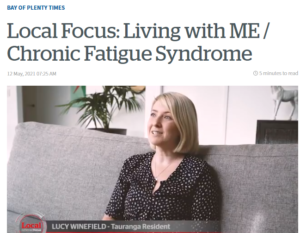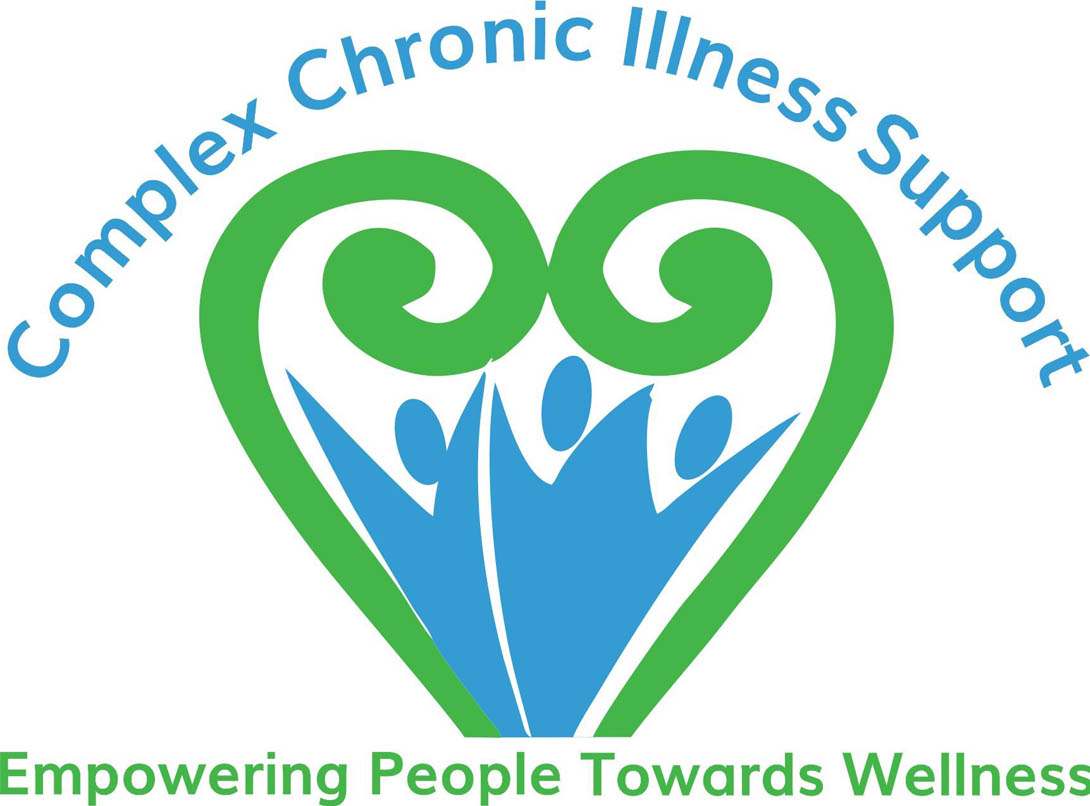
“Chronic Fatigue doesn’t do it justice.” Made with funding from NZ On Air.
Original Video and Article can be found here: NZ Herald
Welcome Bay resident Charlotte Kelp has been living with chronic fatigue syndrome for seven years, but she knew something was wrong long before her official diagnosis.
“It would have been about 2013 and I was a busy mum of three children under three, and I was going to the gym a lot and working. So I had a really full life.
“I suddenly began to feel extremely unwell, very fatigued but an absolute bone-shattering exhaustion,” she said.
It soon became a big change for Charlotte. She had to give up her job and the gym, and was confined to the couch.
“I had no idea what was wrong with me. The doctor was a 25-minute drive, we had limited funds so I would go and get some blood tests and they’d say I was fine and there was nothing wrong.
“My white blood cells were often elevated so they knew I was fighting an infection but it wasn’t really showing in the tests what it might be. I was repeatedly going back to the doctors… I had no answers and so I was hiding from the people that I knew.”
Charlotte says ME is a different kind of fatigue to what most people might experience.
“Standing up is difficult, standing for long periods of time is impossible. My children were just in the room with me but I wasn’t really able to care for them.”
For husband Daniel, daily life is also challenging.
“I always feel like I’m flying solo,” he said. “I can always talk to Char but sometimes I need help and for her to not be able to get up and help is quite difficult.
“We’ve got four little ones and it’s tough,” he chuckles. “They run around like headless chickens and sometimes I need to get some partner advice or something’s going wrong and she’s not there. When she is there I use her but it’s just not all the time.”
Help is available though, in the form of Tauranga-based group Complex Chronic Illness Support.
“In the Bay of Plenty we have a field officer here as well as many other staff,” said CEO Miranda Whitwell. “We’ve got a field officer in Whakatāne. We do one-on-one consults with people with chronic fatigue and their families.
“We can sit with them and create a plan to move forward with their journey towards wellness.”
Tauranga resident Lucy Winefield has been living with the condition since a medical event as a teenager.
“I was really active beforehand, very academic at school. So going from what I was really good at doing to not being able to do it, or thinking that I was just pulling a ‘hollywood’, even though I knew I wasn’t.
“I didn’t really know how to tell anyone how I was feeling so it was kind of ‘push through, you’re unfit because you’ve had surgery’. I did the typical teenage things like resting up all week to be able to go to a party so I could make friends and then I would crash for months afterwards.”
Once diagnosed, things started looking up.
“It was validation of how I was feeling which was the biggest thing and being able to explain to people that it is a thing,” said Lucy.
“I’d always thrown chronic fatigue around but nobody really knew what that meant. I thought I was just tired all the time but there’s so many things that encompasses. I think that’s why the name chronic fatigue syndrome doesn’t really do it justice. A lot of people would say ‘do you just fall asleep randomly?'”
Living with the condition is hard at any age, but it’s especially hard when you’re young and move to a new city.
“Socially it’s very isolating,” said Lucy. “I’m lucky to have friends and family around me in the Bay of Plenty. I haven’t made any friends since I’ve lived here for the last two years because I’m not at work. I’ve chosen not to work because I wasn’t living… I was living to work.”
Educating herself about her condition has been a big help.
“Since I’ve learned more, I’ve been able to teach my family and friends more about what I need or shouldn’t be doing and being able to say ‘no’.
“People have said that Covid lockdown was really hard but that’s how I live day-to-day anyway. Even just going into shops and people sneezing… somebody could have a cold for two weeks and I could have it for two months.”
Lucy’s advice to others is find the right people to support you.
“I’ve put myself in situations where people push me way too hard and they don’t get it, which is not their fault… We talk about building your tribe at CCIS which might not even be family, it could be people who are around you.
“I’ve got very little energy to spend on people so I choose the people who I spend time with really wisely.”
CCIS supports around 7500 in the Bay, but says many more may have the condition without yet realising it.
“If you feel unwell you can go to your doctor and get a referral to us or you can come directly to us. Go onto our website www.ccisupport.org.nz and we have this little tab called ‘Help For Me’ where we go through what we can actually provide a person, how we can support them and their whānau.”
A public seminar in Tauranga is planned for July where anyone can ask anything about these debilitating conditions.
Made with funding from: ![]()

